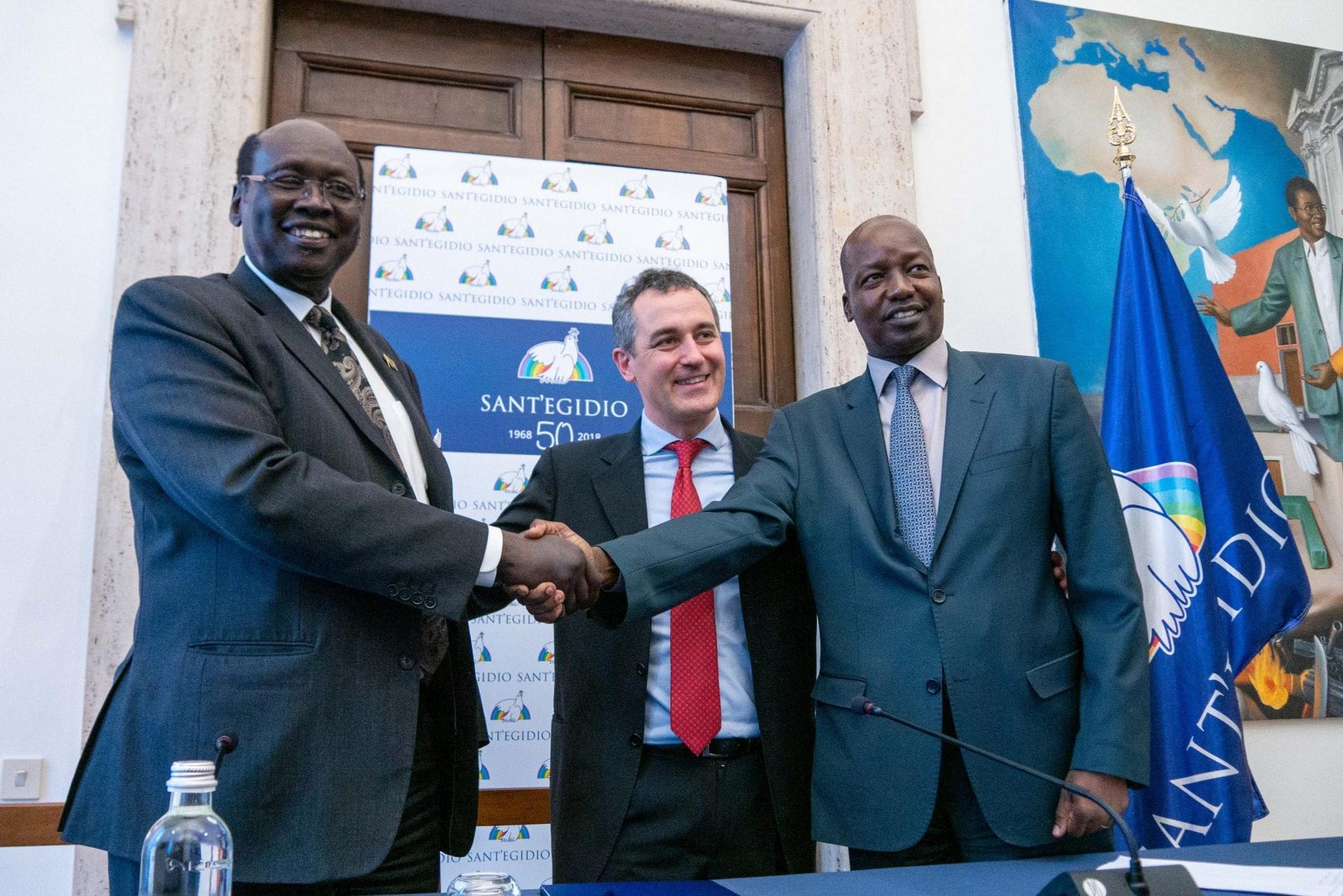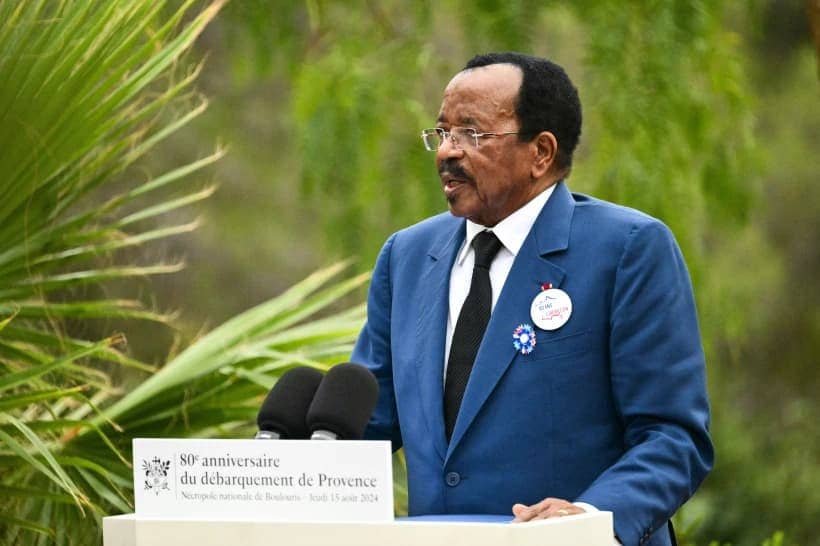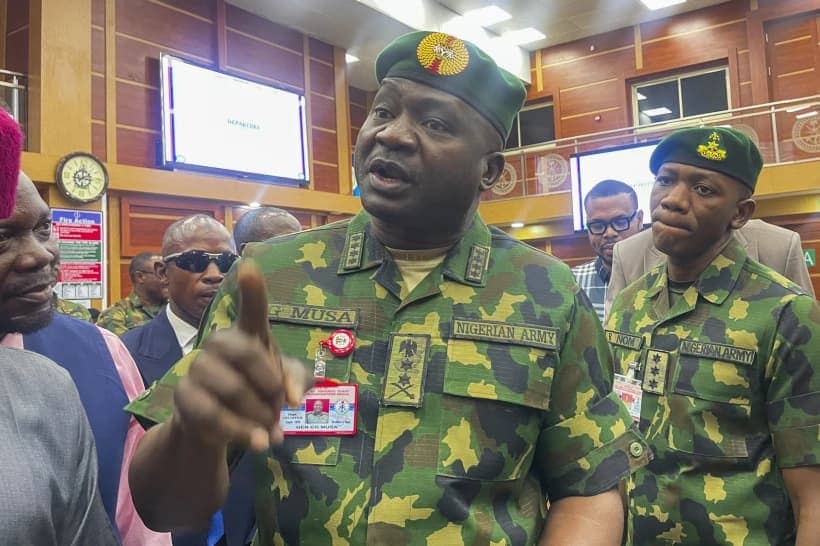ROME – A Catholic activist at the center of efforts to help South Sudan leaders make good on their promise to form a transitional government as part of a peace deal that has been delayed several times says the political will is there, and negotiations are making good progress.
“It took a long time to prepare these two meetings of January and February, but the speed of achieving something is saying something. It’s saying there is a political will to overcome silence and mistrust,” Mauro Garofalo told Crux Feb. 14.
A senior leader in the Rome-based Sant’Egidio movement, Garofalo is an architect of a landmark agreement inked in Rome Jan. 13 between opposition leaders in the South Sudan Opposition Movement Alliance, who had not signed previous peace deals. Experts say it marked a significant step forward in the peace process, as well as continued negotiations.
The South Sudan Opposition Alliance is a coalition of nine political parties and armed groups which opposed the government of President Salva Kiir. It was formed in February 2018 and seven months later had acceded to a revised peace deal with the government that also included the main rebel faction, the Sudan People’s Liberation Movement-in-Opposition.
Members of the coalition were divided on the deal, and it has since split into two groups: one in favor of the deal and one against it. Coalition members who met in Rome in January were those opposed to the proposed accord.
In April 2019 Francis invited both the South Sudanese president and opposition leader to a retreat at the Vatican, where he kissed their feet in pleading for peace.
According to Garofalo, who spoke at the end of last week’s follow-up meeting and signing of the January agreement, the delegates who participated “were clear in their feelings of, I wouldn’t say shame, but they felt guilty about not achieving so much after the spiritual retreat.”
“For some of them, many of them, this new path of dialogue is a sort of answer to the great gesture of the pope,” he said.
South Sudan’s war, which broke out in 2013, just two years after the young nation achieved independence, has so far left some 400,000 dead and around 4 million displaced.
A peace agreement was brokered in September 2018 stipulating that South Sudan’s two vice presidents would formally take office together last spring, sharing responsibility and thus ending the bloody conflict that has marred the country’s brief history.
The formation of the government was delayed until Nov. 12, however, just five days before the deadline. South Sudanese President Salva Kiir Mayardit and opposition leader Riek Machar announced a further delay, this time until February, which international leaders agreed to.
Throughout the process the Sant’Egidio community, widely seen as Pope Francis’s favorite of the so-called ‘new movements,’ has served as a mediator in the process.
Garofalo hailed last week’s meeting as “a significant step that will have consequences on the ground,” saying the political will to form the government is “very clear” on all sides, who are “discussing openly and frankly with the government about substantial issues,” such as the secession of hostilities and how to make that happen.
“Things are going better than expected in the sense that they have reached some real agreement,” Garofalo said, insisting that the timeline for reaching the finish line “must be progressive.”
Further meetings are scheduled for March, where discussion is expected to extend beyond ending hostilities to more substantial political issues, Garofalo said, stressing that not all issues can be solved at once.
“Let’s fight one enemy at a time,” he said, adding that the Sant’Egidio community is “trying to frame this initiative in the best way we can” for the international community, which was present at last week’s meeting through representatives from both the European Union and the United Nations.
Francis, who has closely followed the situation in South Sudan and offered days of prayer and fasting for an end to violence in the country, in November announced his desire to visit South Sudan in 2020 alongside the Archbishop of Canterbury, Justin Welby, should South Sudan succeed in implementing the peace agreement.
Garofalo said that while he is happy with the progress of peace talks in Rome, the prospects for a papal trip to South Sudan in 2020 are still unclear.
“In listening to the words of the Holy Father, he has never quit saying that he wants to go there and visit the population that has been suffering so much due to war,” he said, voicing his view that a papal visit is getting “closer,” but is not yet concrete.
“Our understanding is also that this visit would be an enormous improvement and encouragement for the people of South Sudan to come together,” Garofalo said, adding, “I don’t have any time in my mind, but we’re working.”
Follow Elise Ann Allen on Twitter: @eliseannallen
Crux is dedicated to smart, wired and independent reporting on the Vatican and worldwide Catholic Church. That kind of reporting doesn’t come cheap, and we need your support. You can help Crux by giving a small amount monthly, or with a onetime gift. Please remember, Crux is a for-profit organization, so contributions are not tax-deductible.














